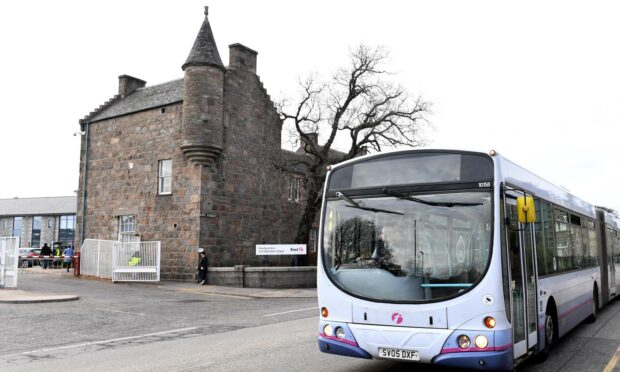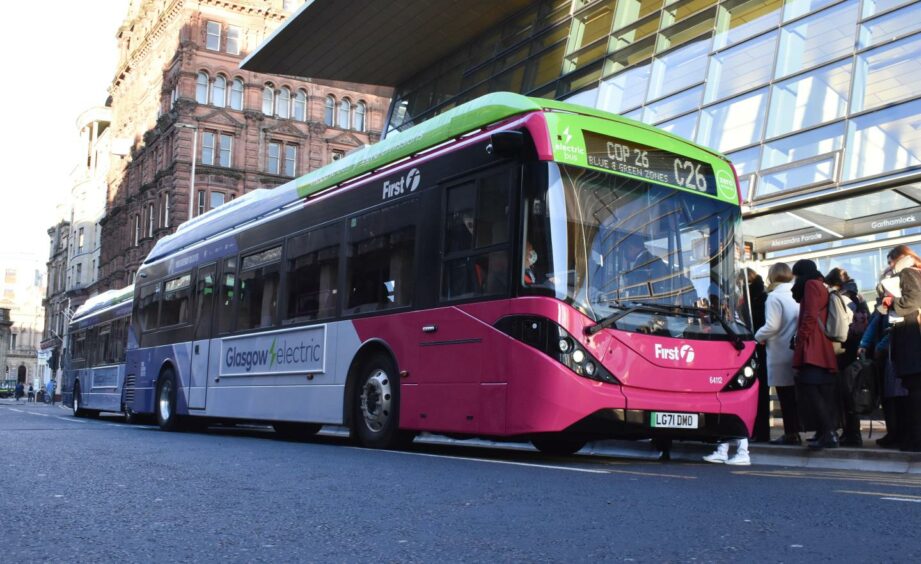More than £10.5 million is to be invested in new fully electric and zero emission buses in Aberdeen.
New vehicles will be added to the First Bus fleet in the city by Spring 2024 and will replace the most polluting buses currently in service.
The addition of 24 single deck plug-in pure electric buses means 30% of the fleet will be made up of zero emission vehicles.
This further move towards green transport has been made possible following a successful bid for Transport Scotland’s Scottish Zero Emission Bus (ScotZEB) Challenge funding.
First Aberdeen and First Glasgow have been awarded a combined £18.6m, with the company committed to spend an additional £16.4m on the King Street depot in Aberdeen and the Scotstoun depot in Glasgow.
A zero emission future
Duncan Cameron, managing director for First Bus Scotland, said the funding marked a “major milestone” for bus travel to become more sustainable.
He said: “Today marks another major milestone in our sustainable travel roadmap with the approval of funding from the Scottish Government allowing us to expand our electric bus infrastructure across the country.
“We are delighted to have been awarded this funding and we are proud to be continuing our journey towards achieving a 100% zero emission fleet by 2035.
“Aberdeen is where our business was founded, and this investment will further enhance its growing number of zero emission buses within the fleet.
“Our King Street depot remains a key part of our future plans as we build towards a zero-emission future and this investment in vehicles and infrastructure is proof of our commitment to the Aberdeen community.
“This announcement will also see huge benefits for our customers as it allows First Bus to offer even greener and quieter bus travel to thousands of new customers across Aberdeen.”
Further upgrades
The funding will also support major infrastructure developments across First Aberdeen, including accelerating electrification at the King Street depot.
This will help the company with its commitment to operate a zero-emission bus fleet by 2035.
Last year, hydrogen double deckers were added to the First Bus fleet in Aberdeen with each vehicle thought to save around 80 tonnes of CO2 emissions each year as the exhausts only emit water.
Aberdeen also makes its own hydrogen to fuel the buses using electricity made from wind power.
The buses have been temporarily taken off the roads while upgrades are carried out after an issue with the mounting bracket was discovered during routine checks.

